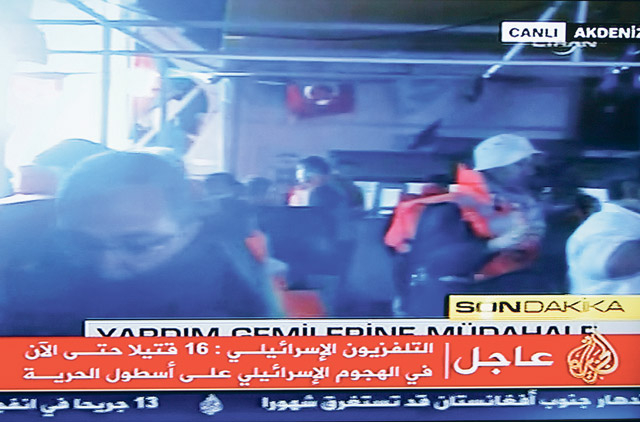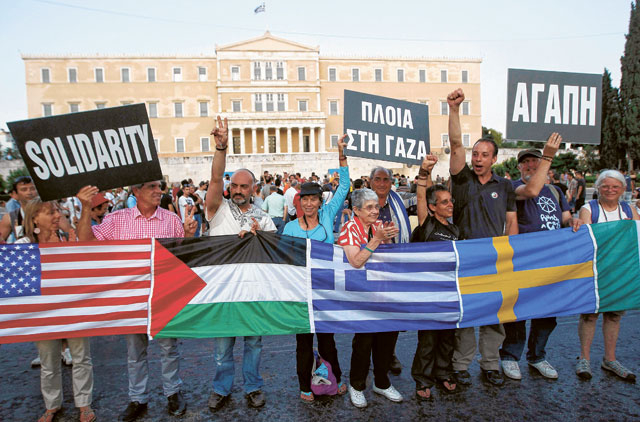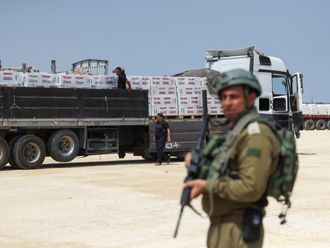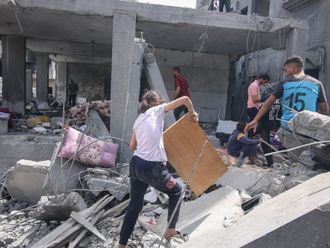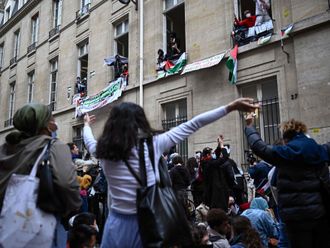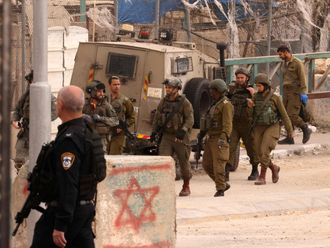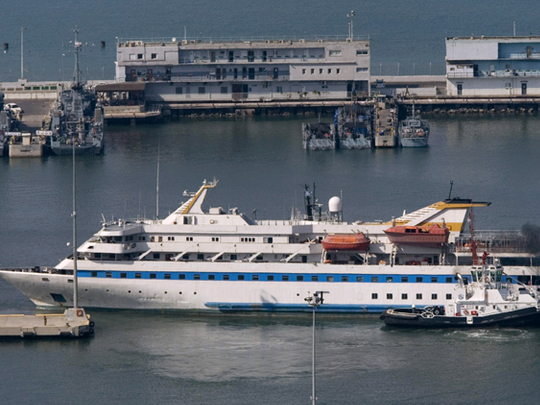
Istanbul: Turkey on Friday rejected a United Nation's report on a deadly Israeli commando raid on a Gaza-bound flotilla as "null and void".
"Actually, the report is null and void for us," Turkish President Abullah Gul said in televised remarks.
Diplomat's expulsion
Turkey says it is expelling the Israeli ambassador and cutting military ties with Israel over the country's refusal to apologise for last year's deadly raid on a Gaza-bound flotilla.
Foreign Minister Ahmet Davutoglu said Friday Turkey was downgrading diplomatic ties to the level of second secretary and that the ambassador will leave Turkey by Wednesday.
Davutoglu also said Turkey was suspending all military agreements signed between the former allies, saying "it is time Israel pays a price".
Turkey downgrades ties with Israel after UN report
Davutoglu said on Friday Turkey was reducing its diplomatic presence in Israel after details emerged of a UN report on an Israeli raid on a Gaza-bound ship that killed nine Turks.
The long-awaited UN report on the raid, made public on Thursday, declared that Israel's naval blockade of the Gaza Strip was legal, but that the Jewish state used unreasonable force.
Davutoglu said some of the report's findings, posted by the New York Times on its website, were unacceptable.
Turkey withdrew its ambassador to Israel immediately after the raid on the aid flotilla last year, and Davutoglu said Turkey's diplomatic representation would be further reduced to second secretary level, and military agreements suspended.
Officials: UN report won't mend Israel-Turkey ties
Occupied Jerusalem: The anticipated publication Friday of a UN report on violence aboard a Gaza-bound protest flotilla last year has led to a further souring of the key Mideast relationship between Israel and Turkey, after Israel expelled the Israeli ambassador.
Turkey on Friday expelled the envoy and suspended military cooperation after insisting on an Israeli apology by the time the report is published.
Regret, reparations
Israel says there will be no apology. Israeli officials say the report does not demand an Israeli apology, establishing instead that Israel should express regret and pay reparations.
An Israeli official said Friday that the report showed Israel's actions were in keeping with international law. The official said Israel hoped the two countries could now "return to the cooperation that was a cornerstone of regional stability".
He spoke on condition of anonymity because the report had yet to be officially released. He said Israel expected it to be made public by the UN later Friday.
Once close
Relations between Turkey and Israel, once close, have slid in recent years as Turkey has tilted away from the West. They deteriorated sharply after the flotilla bloodshed.
The UN report says "Turkey and Israel should resume full diplomatic relations, repairing their relationship in the interests of stability in the Middle East and international peace and security," according to the copy obtained by The New York Times.
Turkey announced the expulsion of the Israeli ambassador and suspension of military cooperation hours before the report was to be published, the most significant downgrading in ties between the two countries since the bloody flotilla attack last year.
A senior Israeli government official who had seen the report told the AP earlier this week that Israel has come to believe that Turkey is intent on worsening ties with Israel in order to bolster its own position in the Arab and Islamic world.
There will be no apology
While Israel does not rule out quiet talks with Turkey on an expression of regret and reparations to families of the dead activists, the report does not ask for an Israeli apology and there will not be one, he said.
He spoke on condition of anonymity because of the sensitivity of the matter.
Nine pro-Palestinian activists - eight Turks and one Turkish-American - were killed aboard the Turkish-flagged ship Mavi Marmara on May 31, 2010, after passengers resisted a takeover by Israeli naval commandos.
The flotilla was en route to Gaza in an attempt to bring international attention to Israel's blockade of the Palestinian territory.
Each side blamed the other, claiming self-defence.
International outcry
After the violence triggered an international outcry, Israel eased restrictions on goods moving into Gaza overland but left the naval blockade in place.
The activists charge the blockade constitutes collective punishment and is illegal. Israel asserts that it is necessary to prevent weapons from reaching the militants who regularly bombard Israeli towns with rockets from Gaza, which is ruled by the Islamist Hamas.
The UN committee established in the aftermath of the incident was made up of two international diplomats - former leaders of New Zealand and Colombia - one representative from Israel and one from Turkey.
Legitimate
The report, as published by the New York Times, accepts Israel's position that the naval blockade was a "legitimate security measure".
It said that Israel "faces a real threat to its security from militant groups in Gaza".
Participants in the flotilla, the committee wrote, "acted recklessly in attempting to breach the naval blockade."
Most passengers were peaceful, according to the report, but a small group was prepared for organised resistance. These passengers were "armed with iron bars, staves, chains, and slingshots, and there is some indication that they also used knives."
Soldiers 'mistreated'
After soldiers rappelled onto the deck from helicopters, according to the report, "three soldiers were captured, mistreated, and placed at risk by those passengers. Several others were wounded."
The report established, however, that Israel's use of force was "excessive and unreasonable".


